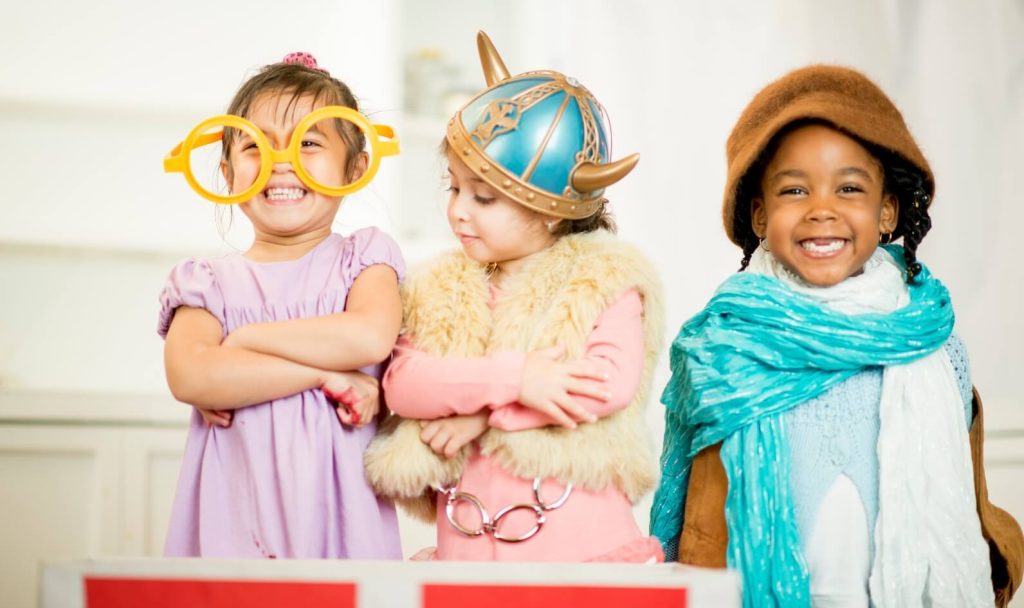The Importance of Imaginative Play in Early Childhood
Picture this…
A toddler is standing in the kitchen, hard at work, emptying the cabinets. They are pulling pots, pans, spatulas, and wooden spoons from their respective places. All the while, they are smiling up at you with a strainer on their head ready to bang away at the bottom of the overturned cookware!
Or
Opening a cabinet in your newly stocked classroom to find a toddler-sized police officer uniform, a little doctor’s white coat, a miniature chef’s hat, or maybe even a tiny shopping cart filled to the brim with cardboard and plastic grocery goodies!
Can you imagine? Well, these scenarios are ideal for fostering imaginative play. Imaginative play – also called symbolic play – happens to have several benefits at each stage of early childhood. From what seems like random banging of rattles during the infant stage of development, through the parallel play in the classroom kitchen stage of preschool, early childhood is the perfect time for caregivers to facilitate the benefits that symbolic play offers. The truth is that children learn to solve problems, coordinate, cooperate, and think flexibly during imaginative play.
As childcare providers, you can help to grow these emergent skills by prioritizing pretend and imaginative play opportunities in your classrooms.
Here are a few activities that can help you get started:
- Storytime– Allowing children to participate in storytelling can help build their imaginations, too. Have students start, or finish, the stories you tell in class. Asking questions such as “What do you think will happen next?” can also boost engagement.
- Dolls & Puppets– Make sure you encourage your students – both girls and boys – to explore their imaginations using dolls, action figures, and puppets. These can be stuffed, or even made from paper.
- Themed Dramatic Play Boxes– Create a variety of themed dramatic play boxes (or bins or baskets) that feature materials that can let children be creative. The Childcare Lounge has some great idea on themed boxes here.
In the meantime, take some time to read the Healthline article about the importance of Symbolic Play in early childhood.



